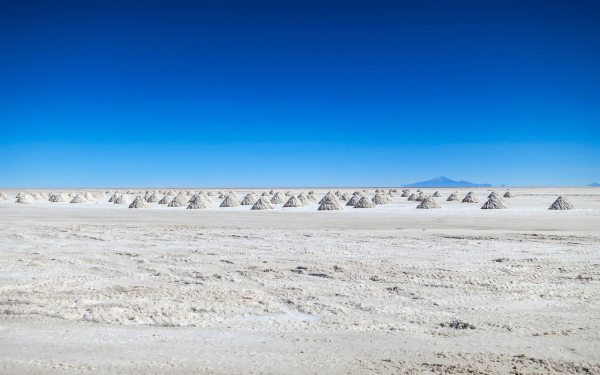Chilean Minister of Mining: Lithium Prices Plunge, but Investment Enthusiasm Remains

Chilean Minister of Mining, Aurora Williams, stated on Wednesday that despite the recent plunge in lithium prices, lithium companies are taking a longer-term view and still maintain interest in new projects provided by the country.
Latin America is rich in mineral resources, with Chile, Argentina, and Bolivia collectively known as the “lithium triangle,” holding over half of the world’s lithium reserves. According to the latest data from the United States Geological Survey (USGS), Chile is the world’s largest lithium reserve country (9.3 million tons) and the second-largest lithium producer after Australia. Furthermore, it also possesses a majority of the world’s “economically extractable” lithium reserves, with the Atacama region accounting for approximately 37% of global lithium reserves.
However, due to Chile’s heavy reliance on lithium production from the large salt flats in Atacama, the market share of this South American country has been decreasing consistently. Atacama, located in the Antofagasta province in northern Chile, hosts the largest operational salt flat project in the world, with over 90% of Chile’s lithium resources concentrated there.
Chilean President Gabriel Boric announced in April the development of a public-private partnership model for the lithium industry, aiming to attract funds while securing the best lithium deposits for the state-owned company, Codelco. However, following this announcement, lithium prices fell by over 40%.
Despite the sharp decline in lithium prices, the demand for lithium is expected to continue growing, driven by the electric vehicle and energy storage industries. The World Bank states that lithium demand is projected to surge in the coming decades. Economists predict that production must increase by over 450% by 2050 to meet the skyrocketing demand. However, whether lithium supply can keep pace and meet the rapidly growing demand remains a question mark.
According to this new model, a newly established 100% state-owned lithium company will participate in all of the country’s lithium industry, with future lithium contracts only being conducted through public-private cooperation, with the state retaining control. Additionally, existing contracts will not be canceled, but the government will attempt to negotiate with relevant companies in hopes that they will voluntarily switch to the public-private partnership model.
Last month, executives from London-based Rio Tinto Group and China’s Tsingshan Holding Group, as well as Tianqi Lithium and France’s Eramet, held discussions with Chilean authorities regarding lithium.
Interested parties are eager to understand which salt flats are available for exploration and development and which areas will be protected. In regions deemed to be of strategic importance, private partners may be able to obtain minority shareholdings, while areas of lesser importance may allow private enterprises to have controlling interests. Williams indicated that these questions are expected to be answered by the end of next month, with contracts due to be finalized by the end of June.
Early next month, the Prospectors & Developers Association of Canada (PDAC) mining conference will be held in Toronto, where Williams will also be in attendance. Additionally, the United States is making efforts to collaborate with its free trade partner countries in building an electric vehicle supply chain. U.S. Treasury Secretary Janet Yellen is set to visit Chile later this week, with lithium and copper being key topics of discussion.
China News
Clean Energy
Energy Metals
Lithium








